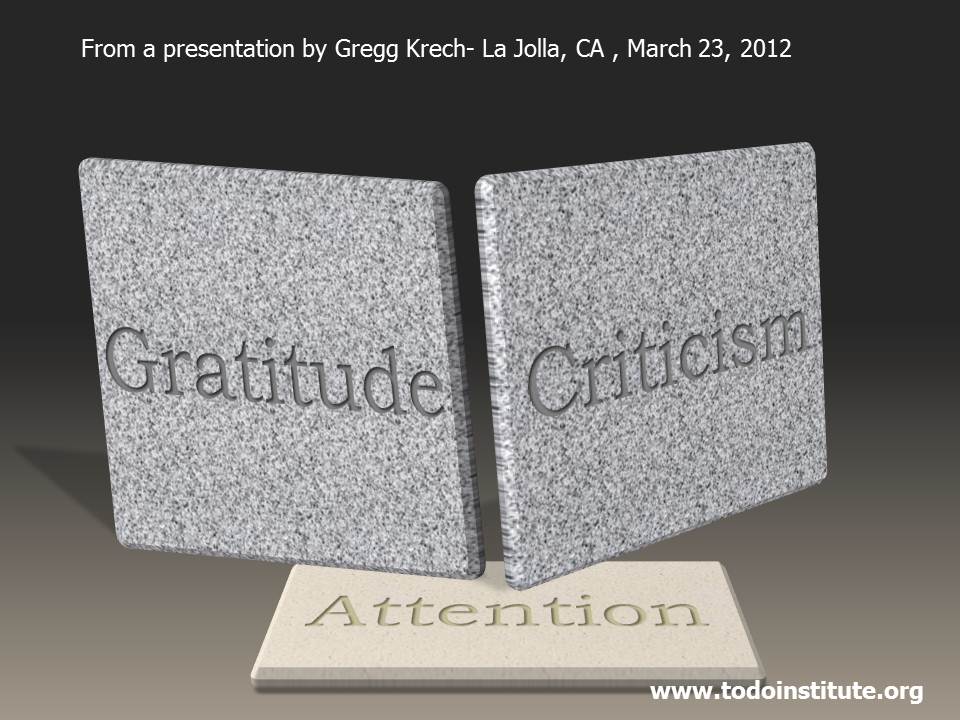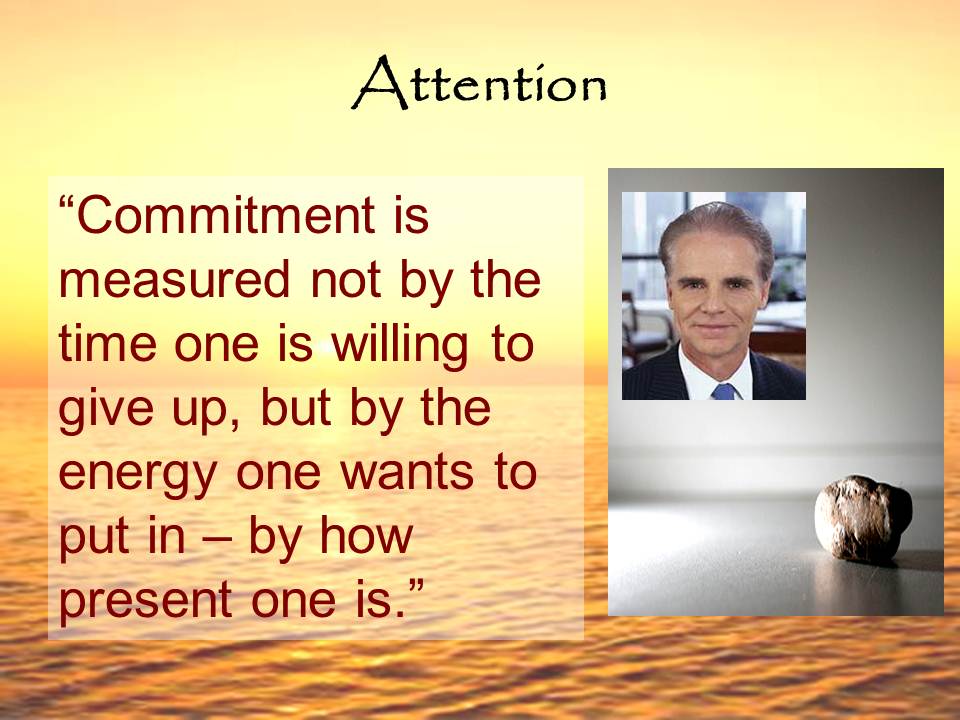Ten years ago I presented at a Mindfulness and Psychology conference in La Jolla on the relationship between Gratitude, Attention and Criticism. (It seems like three years ago, but this graphic confirms the truth.)
Both gratitude and criticism rest on a foundation of attention. For us to express appreciation to our partner, for example, we must first notice that she or her did something to support us. If I notice that Linda made the bed this morning, I might let her know that I appreciate it. If I don’t notice, then I have no basis for thanking her.
Noticing what we notice and don’t notice is interesting. If my attention is on the fact that she forgot to pick up coffee beans yesterday when she was at the store, I may not notice that she made the bed, or that put the laundry away. And if I end up making a critical comment (“How come there’s no coffee? Didn’t you go shopping yesterday??), which triggers defensiveness and push back, then we’ve veered off in a negative direction.
We would generally think of “ingratitude” as being the opposite of “gratitude.” But when we realize that both criticism and gratitude are grounded in a foundation of attention, we see that criticism is actually the opposite of gratitude.
This isn’t just about intimate relationships. It’s about our entire approach to life. Where is your attention? Do you go throughout the day noticing, and commenting on problems? If this is the normal path of your attention, then you’re missing all the ways in which the world is supporting or caring for you, which is a shame for you and for those in your orbit.
Unfortunately, your mind has several things going against it. First, the more familiar you are with something, the less likely you are to notice it. If your car starts right up every morning when you drive the kids to school, you are less likely to notice and have a sense of appreciation for your car starting. It doesn’t pop up on your radar screen.
Second, your brain has a built in “negative bias.” I’ve discussed this in another blog post (A Cup of Negativi-tea). Essentially, your brain naturally gravitates towards noticing problems and difficulties. So if you don’t consciously work with your awareness, this is where you are likely to end up.
We’ve learned a lot in the past ten years about how our brain works and why it does what it does. Some of these ideas are truly fascinating (i.e. neuroplasticity) but knowing this information is relatively useless unless we actually practice something in real life that helps us become more skillful with our attention. Otherwise it’s like reading a lot of books on automotive engine repair. You know a lot about how your car works, but it’s still broken because, ultimately, you have to get your hands dirty and work on the car if it’s going to run properly.
Beginning on Monday, Nov. 14th, I’ll be teaching our annual program, Gratitude, Grace & A Month of Self-Reflection. This 30 day experiential program will help you to practice with your attention in a very unique way. The program is informed by, but not limited to, the Japanese practice of self-reflection known as Naikan. We conduct this program every November as we enter the season of thanksgiving, to uplift our spirits and to acknowledge the support that sustains our lives.
I hope you can join us!
Tags: Attention gratitude Mental Wellness Mindfulness naikan Relationships













